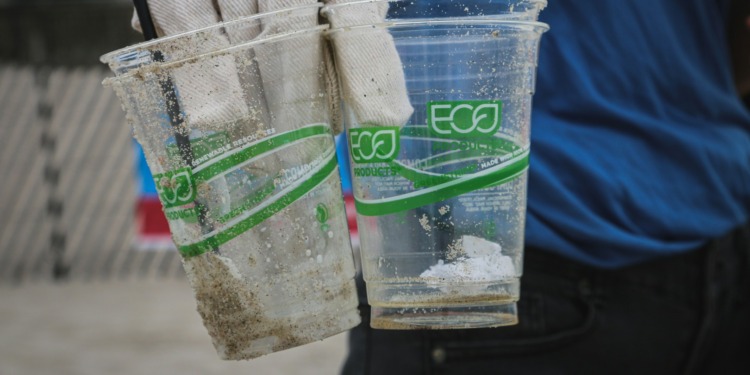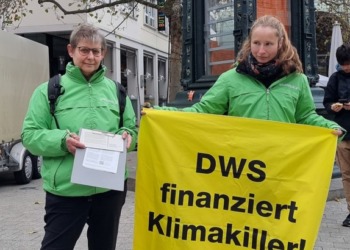On January 17, the European Parliament approved a directive to ban the use of misleading environmental claims and improve product labeling practices — i.e., make labels “clearer and more trustworthy.”
The bill also outlaws “unfounded” claims about the durability of products and the use of emissions-offsetting schemes to prove environmental claims.
“This law will change the everyday lives of all Europeans!”
The aim, as the European Union (EU) explains, is to “protect consumers from misleading marketing practices and help them make better purchasing choices.” The new law should also help to increase consumer trust in environmental certifications.
The directive received overwhelming support in Parliament, with 593 votes in favor, 21 votes against, and 14 abstentions.
Biljana Borzan, the Parliament’s rapporteur for the directive, expressed optimism about the legislation’s impact:
“This law will change the everyday lives of all Europeans! We will step away from throwaway culture, make marketing more transparent and fight premature obsolescence of goods. People will be able to choose products that are more durable, repairable and sustainable thanks to reliable labels and advertisements.”
“Most importantly, companies can no longer trick people by saying that plastic bottles are good because the company planted trees somewhere — or say that something is sustainable without explaining how,” Borzan added. “This is a big win for all of us!”
How the law will achieve its aims
Under the new law, the Bloc’s list of banned commercial practices will be expanded to include “problematic marketing habits related to greenwashing and the early obsolescence of goods.”
The use of general environmental terms like “environmentally friendly,” “natural,” “biodegradable,” “climate neutral,” or “eco” — without substantiated proof — will be prohibited. This should help increase consumer trust in product labels.
Recognizing the confusion caused by the proliferation of sustainability labels and the “failure to use comparative data,” the directive also imposes regulations on the use of sustainability labels.
The only sustainability labels that will be permitted in the EU will be those issued by official certificates or public authorities. This should help enhance consumer trust in the authenticity of environmental certifications.
Importantly, environmental impact claims based on emissions-offsetting schemes will also be banned, with the directive acknowledging the limitations of such schemes as reliable evidence of environmental responsibility.
This is crucial because, as an investigation by The Guardian (published in January 2023) revealed, over 90% of carbon offsets by the world’s biggest certifier are “worthless.” This certifier, Verra, had huge corporations as clients, including Disney, Shell, and Gucci; its CEO announced his resignation, after 15 years at the company, several months after The Guardian published its analysis.
Related Articles: Carbon Offsets: What Are ‘Phantom Credits’? | Are Carbon Offset Schemes a Pretext for Big Polluters | Why Do Carbon Offsets Not Effectively Offset Carbon? | The Voluntary Carbon Market: Unregulated and Useless?
The directive goes further: it underscores the importance of durability in goods by encouraging both producers and consumers to prioritize products with extended lifespans.
“In the future, guarantee information has to be more visible and a new, harmonised label will be created to give more prominence to goods with an extended guarantee period,” the EU writes.
The legislation also targets unfounded durability claims, premature prompts to replace consumables, and misleading representations of goods as repairable when they are not.
While the directive received the final green light from Parliament, it still needs to receive the Council’s final approval. After that, it is to be published in the Official Journal, and member states will then have 24 months to incorporate the directive into their national laws.
Editor’s Note: The opinions expressed here by the authors are their own, not those of Impakter.com — In the Featured Photo: A person holding two clear plastic disposable cups. Featured Photo Credit: Brian Yurasits.








